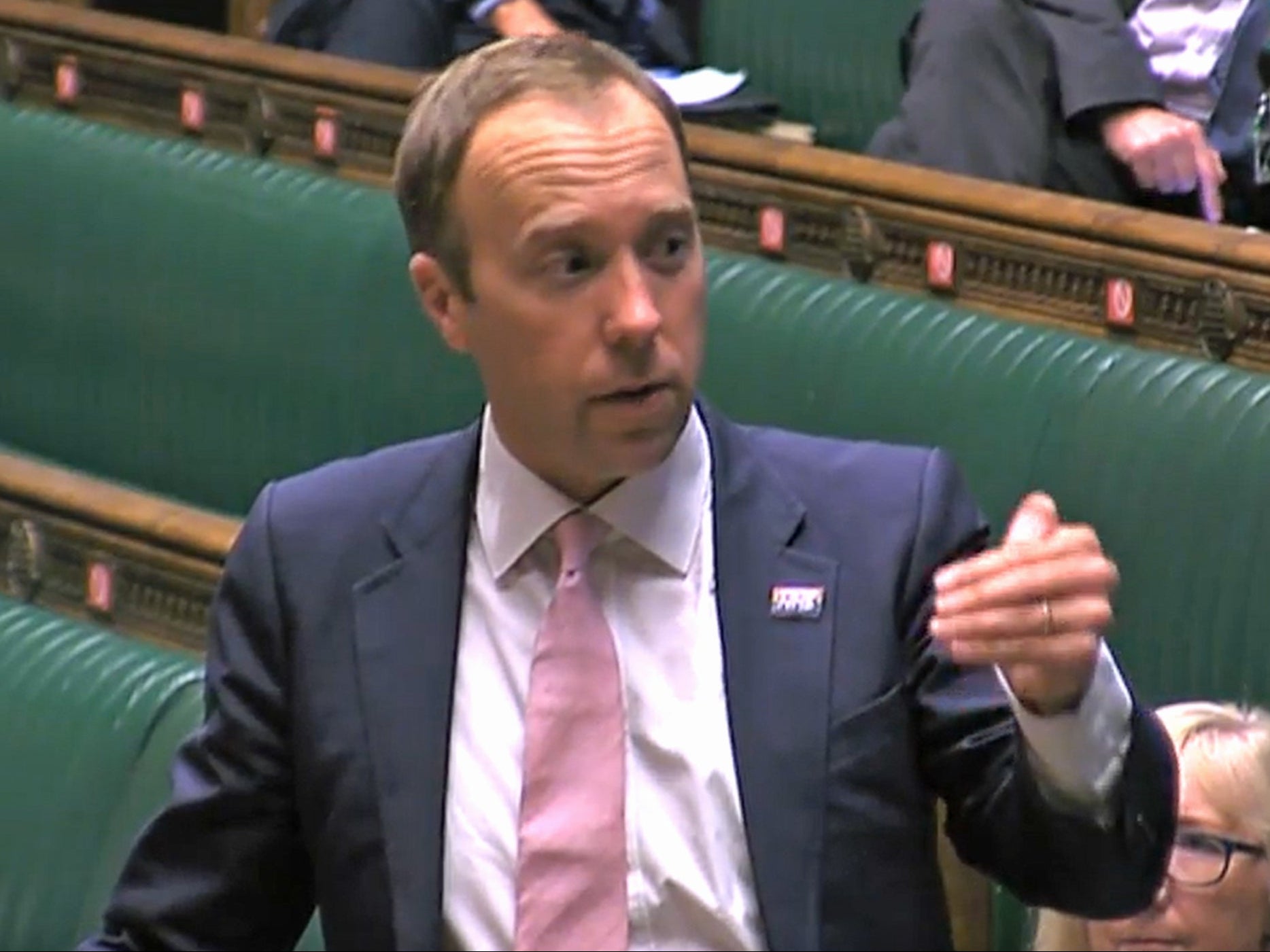Matt Hancock’s ambition has got ahead of itself again – this time it’s coronavirus tests
The health secretary’s performance in the House of Commons was a disastrous combination of concern and boasting about how nearly impressive the testing system is, says John Rentoul


If Matt Hancock had under-promised he would by now be praised for having over-delivered. But he takes a very New Labour approach to politics, which is to set himself and his government stretching targets which the system struggles to meet, but which also force the pace of change.
So there has been a dramatic increase in the number of coronavirus tests that can be carried out, but the system has failed to keep up with demand. Or, as Hancock put it in parliament yesterday: “There have been operational challenges.”
No one is prepared to give him credit for the hundreds of thousands of tests that are carried out; people are only interested in the hundreds of thousands of people who want tests and cannot get them.
The result was that Hancock’s performance in the House of Commons was a disastrous combination of concern for the difficulties people were having, and boasting about how nearly impressive the testing system really is if only people would give him the benefit of the doubt.
The reason for the “operational challenges” was that there had been “a sharp rise in people coming forward for a test, including those who are not eligible”, he told MPs. In other words, it was the fault of timewasters and the worried well. Or it was the fault of the law of supply and demand: “When you have a free service, it is inevitable that demand rises.” I don’t think he meant to suggest that the NHS should charge people for tests, but the only other interpretation of his words is that he should have anticipated this “inevitable” rise in demand and been ready for it.
He came to the Commons armed with figures for the number of tests that had been carried out yesterday in every constituency, so that he could respond to every awful story of a constituent denied a test by saying that a particular constituent might have had a bad time but [fill in number here] of the honourable member’s other constituents were tested. “The vast majority do get tests,” he told Sarah Owen, Labour MP for Luton North.
This did not prepare him, however, for the most striking anecdote of the day, from Munira Wilson, the Liberal Democrat MP for Twickenham. MP after MP for English constituencies had stood up to recount stories of constituents offered tests in Aberdeen or Inverness. She, on the other hand, said a constituent of hers had discovered that if they entered an Aberdeen postcode in their test request, they could be offered a test in Twickenham. (It would seem the system deals with excess demand by directing people to impossibly distant test centres.) Should she advise her constituents to game the system in this way, she asked.
Hancock was furious, disappointed and moralising: “It is incumbent on us all to take a responsible approach and tell our constituents that tests are available in large numbers, that the average distance travelled is 5.8 miles, and that people should take this seriously and not game the system.”
(This is not the only way the system can be “gamed”: Ben Tomsett told me he had been told by a test centre to “find an appointment anywhere in the country – we booked Newcastle, 300 miles from where we live – and just show up to your local centre with the QR code”.)
As ever, Hancock’s rhetoric has outrun reality. “The backlog is falling and is less than one day’s processing capacity,” he said optimistically. But when his well-informed nemesis and predecessor, Jeremy Hunt, reminded him that, a week ago, Hancock had said the tests bottleneck would be solved in two weeks, Hancock backed off setting a new deadline: “I think that we will be able to solve this problem in a matter of weeks.”
Keir Starmer was absolutely right to devote all six of his questions at last week’s Prime Minister’s Questions to people’s problems in obtaining tests; Boris Johnson had better have some answers today.




Join our commenting forum
Join thought-provoking conversations, follow other Independent readers and see their replies
Comments